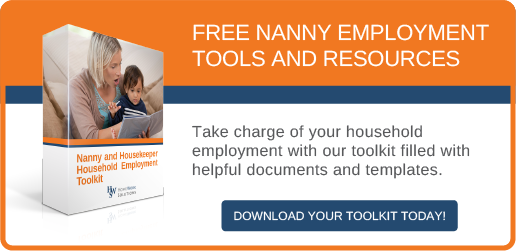 When a nanny who has earned her wages under the table is fired and files an unemployment claim, nanny taxes can become a big deal for the former employers (your family!). Read on about how—and why—paying your household employees on the books is the best choice for you and your family.
When a nanny who has earned her wages under the table is fired and files an unemployment claim, nanny taxes can become a big deal for the former employers (your family!). Read on about how—and why—paying your household employees on the books is the best choice for you and your family.
The soft job market and extended periods between jobs can be a real problem for recently laid-off nannies. They may find themselves filing for unemployment benefits shortly after leaving your employment simply to meet obligations like rent and car payments.
If you paid your nanny ‘under the table’ and your former nanny’s unemployment claim is filed with the state unemployment system, that information is shared with the IRS. Records will not match. It becomes glaringly obvious that the family employed the nanny yet has no tax returns on file.
In most of these cases, a nanny has almost no income tax obligation on her wage. The risks she faces in coming forward are nominal compared to her need for unemployment benefits.
The consequences for the former employer of ignoring household payroll and nanny taxes are significant. The former employer must pay both the nanny’s and the family’s payroll taxes, while the former nanny is relatively off the hook. For just one year of ignored nanny taxes, a family can owe (on average) a $3,700 back tax bill in addition to penalties and interest charged by the IRS and the cost of the professional assistance needed to amend previously filed income tax returns.
In the end, the consequences and monetary cost of ignoring household payroll and nanny taxes are not worth the trouble. Especially when keeping on top of them can be so easy! Check out these helpful resources for quickly and easily managing your household payroll and nanny taxes. Prefer to talk to someone in person? Call 800-626-4829 for a free consultation.

